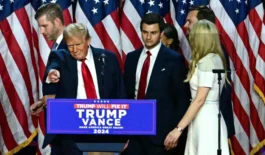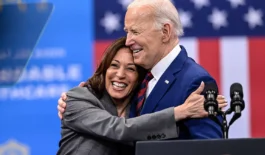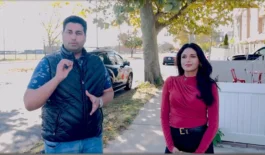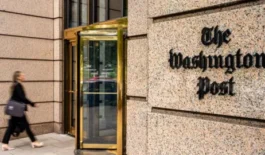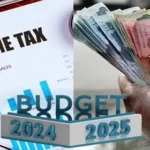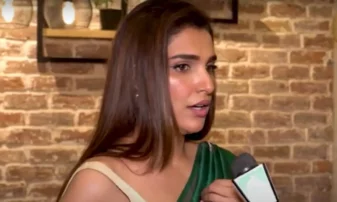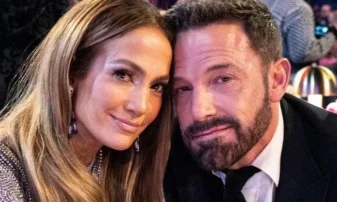As the US presidential election approaches, the Muslim community in America has emerged as a pivotal demographic, especially in critical swing states. With diverse origins and concerns, the community is navigating through a complex array of choices and influences, from foreign policy on Gaza to celebrity endorsements and social media dynamics.
During an exclusive interview with Farrukh Shahbaz Warraich at Aik News Channel, he said that in the final stretch of the US presidential election, the Muslim community, especially in key swing states, has become a focal point for both major parties
Muslim voters’ concerns and confusion over US foreign policy
Covering the election from the US, Pakistani journalist Farrukh Shahbaz Warraich has observed firsthand the complexities facing Muslim voters. Contrary to assumptions in Pakistan, where the Muslim American community is often seen as predominantly South Asian, the US Muslim demographic is highly diverse, with Arab Muslims making up a substantial portion in key states. Arab Americans, particularly in states like Michigan, hold considerable sway, and both major candidates have taken note.
Mr Warraich highlighted a notable moment in Michigan, where former President Donald Trump invited Muslims on stage, seeking their endorsement. For some voters, such gestures carry weight, although others remain skeptical of candidates’ intentions. Conversations across the Muslim community reflect a deep concern over US policies affecting Palestine. Many American Muslims, particularly of Pakistani origin, are closely watching to see if any candidate could influence the US stance on Gaza or restrain Israel’s actions.
Interestingly, he has also reported that some Muslims are contemplating support for Jill Stein, the Green Party candidate. Although Stein is Jewish, her vocal stance on the Gaza issue has resonated with voters seeking a candidate aligned with their views on Palestine.
The influence of celebrities and social media platforms
Both Democratic and Republican campaigns have increasingly turned to high-profile endorsements in a bid to sway undecided voters. This trend was evident in Michigan, where pop icon Jennifer Lopez joined Vice President Kamala Harris at a rally, delivering a speech that criticized Trump and energized the Democratic base. Democrats have leveraged celebrity endorsements extensively, gaining substantial visibility and reach among younger, undecided voters.
On the Republican front, figures like Elon Musk have thrown their weight behind Trump. The billionaire has not only provided financial support to the Trump campaign but also used his social media platform, X (formerly Twitter), to promote pro-Republican content. The Democrats have raised concerns about Musk’s influence, accusing him of biasing X’s platform toward Republican interests. The tech magnate even proposed a controversial initiative in swing states, pledging to award $1 million daily to individuals signing a particular petition. This offer was challenged in court, reflecting the contentious atmosphere around electoral influence.
Battleground states and the stakes for Muslim voters
Currently, all eyes are on seven key swing states where both parties have focused their campaigning. Figures like Harris and Trump have made frequent appearances, signalling the intense competition to secure the votes of influential communities, including Muslims. For many in the Muslim community, the stakes in these battlegrounds go beyond domestic issues, touching on the broader implications of US foreign policy and its impact on global Muslim populations.
As November approaches, Muslims in the US remain engaged in discussions and debates about which candidate aligns most closely with their priorities. According to Warraich, there’s a significant level of caution among Pakistani Muslims who recall past presidents’ promises that, in their view, led to little substantial change in US policy toward Israel.
https://www.facebook.com/watch/?v=496089073461631&rdid=y3gIOMukeZD7ORsE
An uncertain road ahead
With the election just weeks away, the Muslim vote remains unpredictable, influenced by a mix of celebrity endorsements, grassroots efforts, and social media campaigns. In swing states, where even small demographic shifts can sway outcomes, both Republicans and Democrats continue to court Muslim voters, recognizing the community’s growing influence in American politics. Whether this outreach translates into a decisive swing for either side will be seen on election night, but one thing is clear: the Muslim vote could be more consequential than ever in shaping the 2024 US presidential race.










